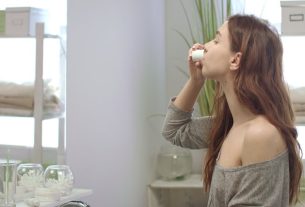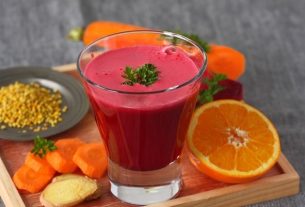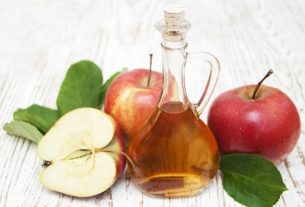Nettle is a medicinal plant of the species Stinging nettlealso known as nettle, nettle or nettle, rich in vitamins A, C and K, polyphenols, flavonoids and minerals such as calcium, iron and magnesium, with anti-inflammatory and antioxidant action, being widely used as a home remedy to regulate blood pressure and blood sugar levels, as well as helping to treat arthritis and rheumatism, for example.
The normally used parts of nettle are the leaf, which can be used in the form of tea, or the root, used in the form of capsules, and can be found in herbalists, health food stores, compounding pharmacies, markets and some open-air markets. , and must be used with medical advice.
Another species of nettle is Lamium albumknown as white nettle, but which has different properties than Stinging nettlebeing indicated mainly for gynecological problems such as menstrual cramps, bleeding or inflammation in the uterus.

What is it for
The main indications of nettle are:
- Arthritis;
- Osteoarthritis;
- Rheumatism;
- High pressure;
- Diabetes;
- Rhinitis;
- Allergic cough;
- Acne;
- Dermatitis;
- Muscle pain;
- Inflammation of the gums;
- Anemia;
- Urinary infection;
- Kidney stone.
Furthermore, some studies show that nettle root can be used to help treat enlarged prostates by reducing the action of enzymes responsible for the production of testosterone, due to the flavonoids in its composition.
The main benefits of nettle are due to the polyphenols, flavonoids, vitamins A, C and K, folic acid, and minerals such as calcium, potassium, iron and magnesium, in its composition, which give it antioxidant, anti-inflammatory, antihypertensive, diuretics and antidiabetics.
Although it has many health benefits, nettle does not replace medical treatment and should be used under the guidance of a doctor or herbalist.
How to make nettle tea
Nettle tea is simple and quick to make and has several health benefits.
Ingredients
- 1 tablespoon of dried nettle leaves;
- 1 cup of boiling water.
Preparation mode
Add the dried nettle leaves to the boiling water and let it rest for 10 minutes. Wait for it to cool, strain and drink up to 2 cups a day.
Another way to use nettle to obtain its benefits is in the form of capsules, which can be taken 1 capsule of 400 mg, 2 to 3 times a day, according to medical advice.
Possible side effects
The most common side effects of nettle usually appear when the plant is consumed in larger quantities than recommended, and include stomach pain, diarrhea, constipation, allergies or itchy skin, or increased uterine contractions, in the case of women. , which can increase cramping symptoms or cause miscarriage.
Furthermore, nettle can greatly reduce blood pressure and make it difficult to control blood pressure in people with hypertension, or greatly reduce blood sugar levels, causing a hypoglycemia crisis in diabetics.
Who shouldn’t use
Nettle should not be used by pregnant women as it can cause uterine contractions and induce premature labor, miscarriage or malformations in the baby. Furthermore, nettle should also not be used during breastfeeding, as the toxic effects on the baby are not known.
This plant is also not recommended for people with heart problems, such as heart failure, as it can worsen symptoms and interact with medications recommended for heart problems.
Furthermore, although nettle is recommended for urinary infections and kidney stones, due to its strong diuretic effect, this plant should be avoided by people with kidney failure, as it has a direct action on the kidneys, in addition to being able to enhance the effect of diuretic medications. and increase the risk of dehydration.
Bibliography
- TAHRI, A.; et al. Acute diuretic, natriuretic and hypotensive effects of a continuous perfusion of aqueous extract of Urtica dioica in the rat. J Ethnopharmacol. 73. 1-2; 95-100, 2000
- VAJIC, Una-Jovana; et al. Urtica dioica L. leaf extract modulates blood pressure and oxidative stress in spontaneously hypertensive rats. Phytomedicine. 46. 39-45, 2018
- KIANBAKHT, Saeed; et al. Improved glycemic control in patients with advanced type 2 diabetes mellitus taking Urtica dioica leaf extract: a randomized double-blind placebo-controlled clinical trial. Clin Lab. 59. 9-10; 1071-6, 2013
- DOMOLA, Masoud Shabani; et al. Insulin mimetics in Urtica dioica: structural and computational analyses of Urtica dioica extracts. Phytother Res. 24. 2; S175-82, 2010
- BAKSHAEE, Mehdi. Efficacy of Supportive Therapy of Allergic Rhinitis by Stinging Nettle (Urtica dioica) root extract: a Randomized, Double-Blind, Placebo- Controlled, Clinical Trial. Iran J Pharm Res. 16. 112-118, 2017
- QAYYUM, Rahila; et al. Mechanisms underlying the antihypertensive properties of Urtica dioica. J Transl Med. 14. 1; 254, 2016
- Testai, Lara; et al. Cardiovascular effects of Urtica dioica L. (Urticaceae) roots extracts: in vitro and in vivo pharmacological studies. J Ethnopharmacol. 81. 1; 105-9, 2002
- UPTON, Roy. Stinging nettles leaf (Urtica dioica L.): Extraordinary vegetable medicine. Journal of Herbal Medicine. 3. 1; 9-38, 2013
- ROSCHEK JR, Bill; et al. Nettle extract (Urtica dioica) affects key receptors and enzymes associated with allergic rhinitis. Phytother Res. 23. 7; 920-6, 2009
- MITTMAN, P. Randomized, double-blind study of freeze-dried Urtica dioica in the treatment of allergic rhinitis. Plant Med. 56. 1; 44-7, 1990
- JACQUET, Alain; et al. Phytalgic, a food supplement, vs placebo in patients with osteoarthritis of the knee or hip: a randomised double-blind placebo-controlled clinical trial. Arthritis Res Ther. 11. 6; R192, 2009
- BEHZADI, Alidad Amiri; et al. Effects of Urtica dioica supplementation on blood lipids, hepatic enzymes and nitric oxide levels in type 2 diabetic patients: A double blind, randomized clinical trial. Avicenna J Phytomed. 6. 6; 686-695 , 2016
- TELO, Selda; et al. Effects of Stinging Nettle (Urtica Dioica L.,) on Antioxidant Enzyme Activities in Rat Model of Mammary Gland Cancer. Iran J Pharm Res. 16. 164-170, 2017
- OTLES, Semih; YALCIN, Buket. Phenolic compounds analysis of root, stalk, and leaves of nettle. ScientificWorldJournal. 2012. 564367, 2012
- DHOUIBI, RAOUIA; et al. Screening of pharmacological uses of Urtica dioica and others benefits. Progress in Biophysics and Molecular Biology. 150. 67-77, 2020
- AHMED, Mueen; PARSURAMAN, Subramani. Urtica dioica L., (Urticaceae): A Stinging Nettle. Systematic Reviews in Pharmacy. 5. 1; 6-8, 2014
- HAOUARI, Mohammed El; ROSADO, Juan A. Phytochemical, Anti-diabetic and Cardiovascular Properties of Urtica dioica L. (Urticaceae): A Review. Mini Reef With Chem. 19. 1; 63-71, 2019
- SAFARINEJAD, Mohammad Reza. Urtica dioica for treatment of benign prostatic hyperplasia: a prospective, randomized, double-blind, placebo-controlled, crossover study. J Herb Pharmacother. 5. 4; 1-11, 2005

Sign up for our newsletter and stay up to date with exclusive news
that can transform your routine!
Warning: Undefined array key "title" in /home/storelat/public_html/wp-content/plugins/link-whisper-premium/templates/frontend/related-posts.php on line 12
Warning: Undefined array key "title_tag" in /home/storelat/public_html/wp-content/plugins/link-whisper-premium/templates/frontend/related-posts.php on line 13



